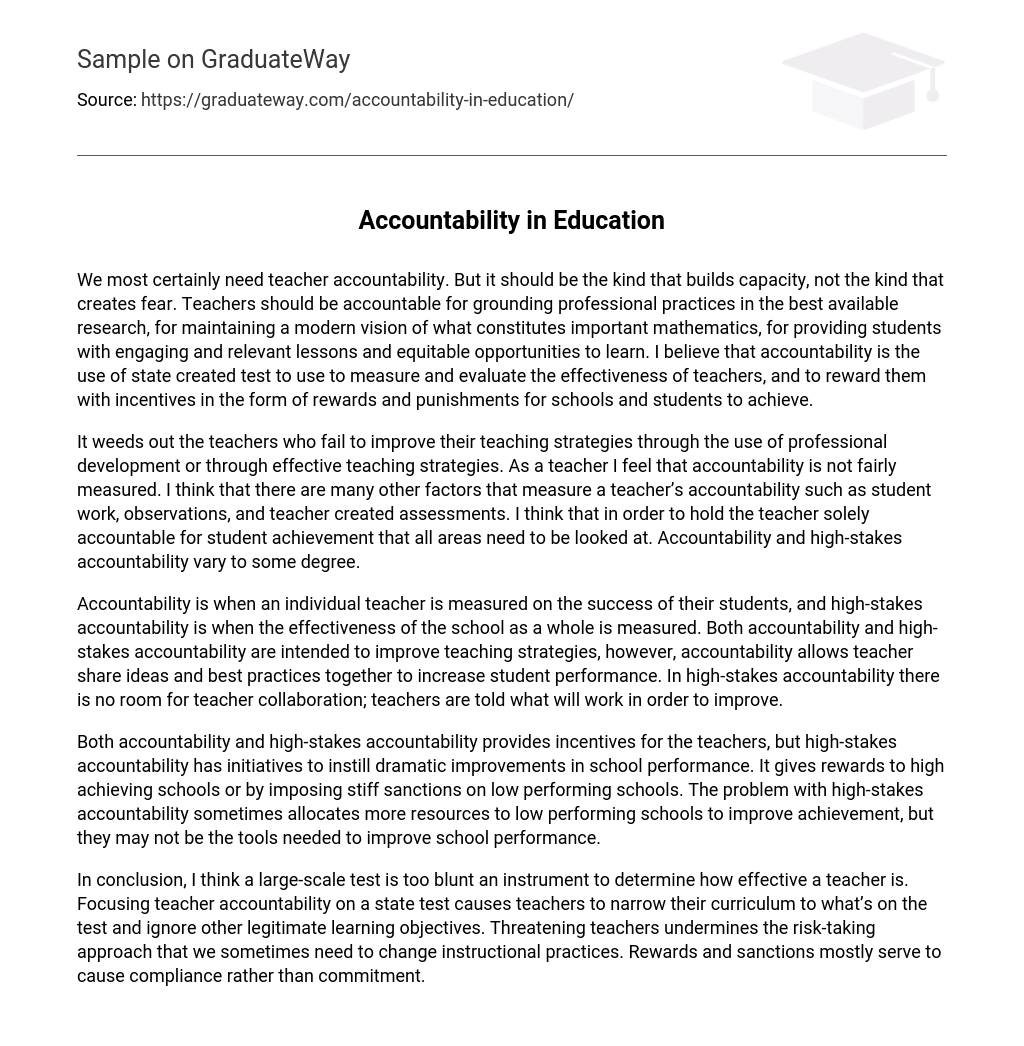We need teacher accountability, but it should be a form that promotes growth instead of fear. Teachers should be accountable for incorporating evidence-based practices, keeping up with current understanding of important mathematics, and delivering engaging and equitable lessons to students. I believe accountability involves using state-administered tests to evaluate and measure teacher effectiveness, and to provide incentives in the form of rewards and punishments for schools and students to succeed.
The text highlights the importance of identifying and eliminating teachers who do not improve their teaching strategies through professional development or effective teaching strategies. The author, who is also a teacher, believes that accountability is not accurately measured. They argue that factors such as student work, observations, and teacher-created assessments should be considered alongside student achievement to hold teachers accountable. Additionally, the text acknowledges that accountability and high-stakes accountability differ to some extent.
Accountability refers to the measurement of an individual teacher’s success based on their students’ performance. High-stakes accountability expands this assessment to evaluate the effectiveness of the entire school. The purpose of both accountability and high-stakes accountability is to enhance teaching strategies. However, accountability fosters collaboration among teachers, allowing them to share ideas and best practices to improve student performance. On the other hand, high-stakes accountability eliminates the opportunity for teacher collaboration, as they are provided with predetermined methods deemed necessary for improvement.
While both accountability and high-stakes accountability offer incentives for teachers, the latter aims to bring about significant enhancements in school performance. It accomplishes this by providing rewards to schools that excel or imposing severe penalties on underperforming schools. However, a drawback of high-stakes accountability is that it may allocate additional resources to low performing schools in order to improve outcomes, but these resources may not be the ones required for enhancing school performance.
To summarize, I believe that utilizing a widespread examination is not a precise method to evaluate the effectiveness of a teacher. When teachers are held accountable based on a state test, they tend to limit their instruction to solely what is included in the test, disregarding other valuable learning goals. The act of threatening teachers undermines their willingness to take risks, which can be essential for implementing innovative teaching methods. Additionally, rewards and punishments primarily lead to compliance rather than genuine dedication.





